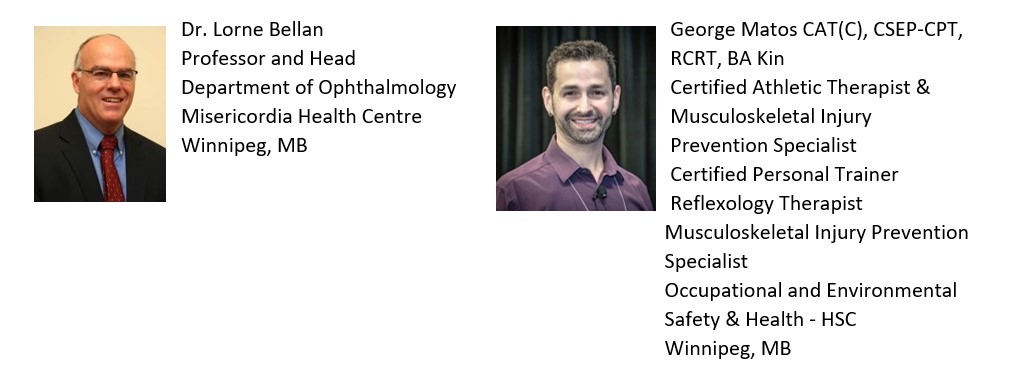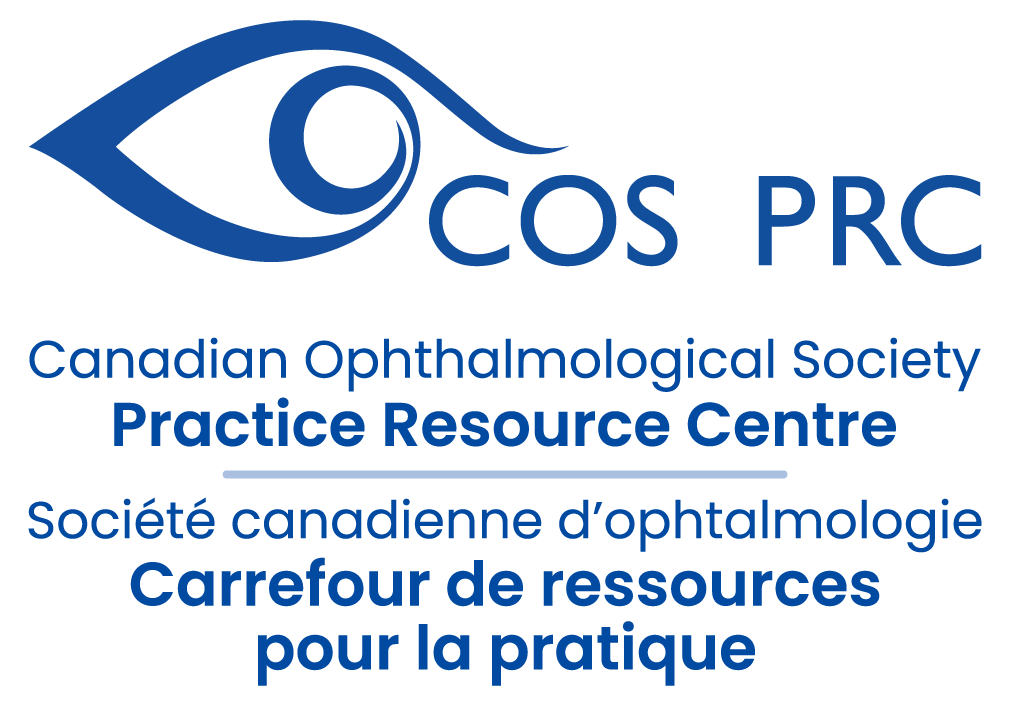Cybersight.org
Une ressource en ligne classique en ophtalmologie, cybersight.org a récemment réaménagé son site Web pour le rendre encore plus convivial. Je consulte fréquemment le site depuis ma formation en raison de la pléthore de manuels, vidéos de chirurgie, webinaires et cours en ligne gratuits. Comme il s’agit d’une division d’Orbis, les ressources adoptent une perspective vraiment internationale et bon nombre de nos membres de la SCO y contribuent également. Le matériel pédagogique va des techniques cliniques de base aux approches surspécialisées, mais comprend également des informations très pratiques telles qu’un dictionnaire d’ophtalmologie chinois-anglais (https://cybersight.org/portfolio/chinese-fnglish-ophthalmology-dictionary/) avec phonétique romanisée du pinyin. Si vous aimez mettre à l’épreuve vos connaissances, il y a aussi des petits tests dont vous pouvez tirer des leçons. Donc, si vous cherchez une ressource Web en ophtalmologie mise à jour et digne de confiance à ajouter à vos signets, essayez cybersight.org.
Recommandé par la Dre Christine Law, MD FRCSC
Présidente, Comité du Carrefour de ressources pour la pratique
Société canadienne d’ophtalmologie
Case Report: Keratoconjunctivitis as the initial medical presentation of the novel coronavirus disease 2019 (COVID-19)
Short communication|Articles in Press from the Canadian Journal of Ophthalmology
Abstract
We present a case of coronavirus disease 2019 (COVID-19) with an initial medical presentation of keratoconjunctivitis, the first such reported case in North America. The patient’s primary symptom was a red eye with watery discharge, though she did have mild respiratory symptoms, without fever. She was diagnosed with keratoconjunctivitis; evolving corneal findings were characterized through repeat visits to ophthalmology. A conjunctival swab of the affected eye was positive for the SAR-CoV-2 virus. This case emphasizes the importance of ensuring that first-line health care providers, including ophthalmologists, optometrists, emergency physicians, and family physicians, consider COVID-19 on the differential for any patient with recent travel who presents with acute conjunctivitis. Having a high index of suspicion with this presentation would allow for appropriate precautions to be taken to prevent further spread of COVID-19.
Access Details
Read the full case report published on the Canadian Journal of Ophthalmology (CJO) .
La compétence par conception
Dans La compétence par conception (CPC), le coaching joue un rôle important dans l’apprentissage et la progression des résidents. Un coaching efficace exige des compétences, c’est pourquoi un groupe d’éducateurs cliniciens a créé les modules d’apprentissage en ligne « Le coaching vers la compétence »
Dans le modèle de coaching de la CPC, l’évaluation devient un outil d’apprentissage dans le modèle de coaching, et non uniquement une méthode d’évaluation. Il exige que les cliniciens établissent un rapport pédagogique avec les résidents pendant qu’ils exécutent leurs tâches quotidiennes, leur offrent de la rétroaction avec coaching, et documentent la rencontre.
« Le coaching vers la compétence » comprend cinq activités interactives qui permettent à tous ceux qui enseignent aux résidents de mettre en pratique le processus de coaching RA-OCD. Elles ont pour but de vous aider repérer vos lacunes en matière de compétences et de connaissances liées au coaching et à les comble au moyen d’exercices, de réflexions et d’autres options d’apprentissage.
Crédits de DPC
Cette activité est un programme d’autoévaluation agréé (section 3), tel que défini par le programme de Maintien du certificat du Collège royal et approuvé par l’Unité du développement professionnel continu du Collège royal. Vous pouvez cumuler un maximum de 30 minutes pour chaque module (les crédits sont calculés automatiquement).
Détails d’accès
Visitez le site web du Collège royal des médecins et chirurgiens du Canada pour plus d’informations : http://www.royalcollege.ca/mssites/rxocr/fr/story_html5.html
2019 Sally Letson Symposium Online Presentations – Ready to Stream
COS is providing attendees and non-attendees the opportunity to purchase the online presentations from the 2019 Sally Letson Symposium “Glaucoma: Thriving Under Pressure”.
The 51st Sally Letson Symposium was dedicated to the effective, efficient, and empathetic management of glaucoma patients. The dynamic faculty of 19 international experts guided the audience in comprehensive approaches to the most common and challenging glaucoma entities. The whole armamentarium of medical, laser, and surgical therapies was addressed in the context of individual patient needs. Expert debates and audience interaction helped us tackle some of the hottest topics, controversies, and cutting edge developments in the field. This program aims to leave your entire eye care team with the right tools to deliver the best in glaucoma care.
Cost
- Attendees: $60 + HST
- Non-Attendees: $185 + HST
NOTE: Please note presentations are available for viewing for one year only (ending September 2020).
CPD Credits
Section 2: Self-Learning (0.5 credits per activity)
Scanning: After viewing this Online Presentation, ophthalmologists may claim 0.5 credits as a scanning activity under Section 2 Self-learning in the Maintenance of Certification program of the Royal College of Physicians and Surgeons of Canada (RCPSC).
OR
Section 2: Planned Learning (2 credits per hour)
Personal Learning Plan: A Personal Learning Plan (PLP) is a self-initiated learning activity that is stimulated by a question, issue or dilemma in your professional practice. Watching these presentations may have stimulated a question for you about your practice. To complete a PLP, you will need to name the issue, dilemma or question within your practice scenario and identify opportunities to explore this further and reflect, whether through an activity, a conference or workshop, further reading, videos, etc. When complete you may establish what you have learned and/or the changes you anticipate implementing from this learning.
You can claim Section 2 Credits within the MOC Program for time spent developing your learning plan (2 credits per hour spent). You can also claim the time spent executing the research of that question or issue (participating in a conference, webinar or reading), as well as the time you spend reflecting.
Access Details
You may now purchase and stream the presentations from the 2019 Sally Letson Symposium “Glaucoma: Thriving Under Pressure” by logging in on the following page:
https://www.events.cos-sco.ca/letson/english/presentations_cur_yr.asp
Webinar Recordings: Ergonomics and Mindfulness in the Operating Room. Providing Care to Your Patients While Avoiding Becoming One
The Canadian Ophthalmological Society is pleased to provide you to a recording of the webinar on practical ergonomic tips in the ophthalmology operating room, that took place on December 9, 2019.
In the session George Matos, Musculoskeletal Injury Prevention Specialist and ophthalmologist Dr. Lorne Bellan review how to adapt your posture to protect yourself through a day of surgery. This webinar includes thoughts to have in mind at the start of your surgical day, including how to set up your foot pedals, chair, operating table and surgical microscope, each to optimize your posture and support during your day of surgery and to minimize the risk of repetitive stress injuries.

Learning Objectives
At the end of this webinar, participants will be able to:
- Describe optimal posture for a day of cataract surgery
- Position foot pedals optimally from an ergonomics perspective
- Set up your surgical chair for optimal arm, leg and back support
- Set the microscope position and angle optimally for your neck
- Re-introduce equipment/movement patterns to lessen musculoskeletal strain that can be overlooked
CPD Credits
This webinar archive is an Accredited Group Learning Activity (Section 1) as defined by the Maintenance of Certification Program of the Royal College of Physicians and Surgeons of Canada, and was approved by the Canadian Ophthalmological Society. You may claim a maximum of 1 hour.
Access Details
To access the archived (recorded) version of the webinar visit the event website: https://event.on24.com/wcc/r/2140596/980B5EE498FA3BA26DF28AC29830E995
This program was delivered with financial support from an educational grant from provided to the COS by the Canadian Medical Association, MD Financial Management and Scotiabank.
Musculoskeletal Disorders in Ophthalmologists
Did you know?
Work-related musculoskeletal disorders in ophthalmologists are high, ranging from 51-80% across studies.
This module was developed to showcase best ergonomic practices and injury prevention. View the module, online through the Queen’s University website.
Learning Objectives
- Review the importance of ergonomics for ophthalmologists
- Identify areas in the clinic and operating room that may predispose to musculoskeletal disorders
- Learn proper ergonomic risk factor modification
- Recognize signs and symptoms of musculoskeletal disorders, understanding the importance of early intervention
CPD Credits
Completion of this 30 minute online learning module has been determined by Queen’s University to be eligible for 0.50 hours of Royal College of Physicians and Surgeons of Canada Section 2: Self Learning for Specialists credits.
For more information visit the Queen’s University website.

U of T Med: Heal Thyself
U of T Med is an alumni magazine like no other. Bold, ambitious and lively, we dive into medicine’s most pressing topics. Heal Thyself is the U of T Med publication from Summer 2017 addressing the topic of physician mental health.
This issue features:
- Can We Talk About Physician Mental Health?
- Who Heals the Healer?
- The Unspeakable Struggle
- A Heavy Toll
- Under Pressure
- After the Tragedy
- The Millennial Approach
- Ready, Steady, Reset
- Human Beings First and Foremost
- Unvarnished Truth
To review the U of T Med Summer 2017 issue, visit the website.
Earning and Claiming CPD credits via the CJO
Earning CPD credits
You can earn Section 2 credits toward your Royal College of Physicians and Surgeons of Canada (RCPSC) Maintenance of Certification (MOC) requirements by:
- Reading CJO articles: each journal article that you read and deem has had a significant impact on your learning or practice can be recorded individually — you will receive one (1) credit per article.
- Peer reviewing CJO articles: you can earn up to 15 credits per year as a Peer Assessment activity. The 15 credits are eligible for your yearly contributions.
Claiming CPD credits
To claim CPD credits for reading CJO articles, you must record them in your MAINPORT ePortfolio as Section 2 Self Learning credits.
To claim CPD credits for peer reviewing CJO articles, you can either record them in MAINPORT yourself, or you can opt into our automatic transfer program and we will submit your Section 2 Peer Assessment credits directly to the RCPSC every year. The credits will appear in your MAINPRO dashboard for your review and approval. To opt into this program, please contact the Managing Editor at [email protected].
Pourquoi les organismes, les chercheurs et les patients sont-ils les proies des prédateurs de la publication?
Participer en ligne ou en personne le 10 octobre de 13 h 30 à 14 h 30. Cette conférence interactive donnera un aperçu de ce que sont les publications prédatrices et décrira leur incidence sur les organismes, les chercheurs et les patients. Ce faisant, l’exposé portera sur des sujets connexes, y compris les mesures incitatives universitaires, le financement de la recherche et les politiques de la science. On discutera de l’incidence des revues prédatrices sur les efforts de synthèse des connaissances et sur la littératie du domaine de la santé. On fera des recommandations au sujet des mesures de protection que les intervenants peuvent mettre en place pour limiter l’interaction avec ces publications et pour aider à réduire le gaspillage de recherches dans la façon dont la recherche biomédicale est partagée et utilisée.
La conférencière Kelly Cobey, est investigatrice à l’Institut de recherche de l’Hôpital d’Ottawa (IRHO) au Centre for Journalology.
Détails d’accèss
Pour plus d’ Information et l’ inscription vister le site CADTH Website



